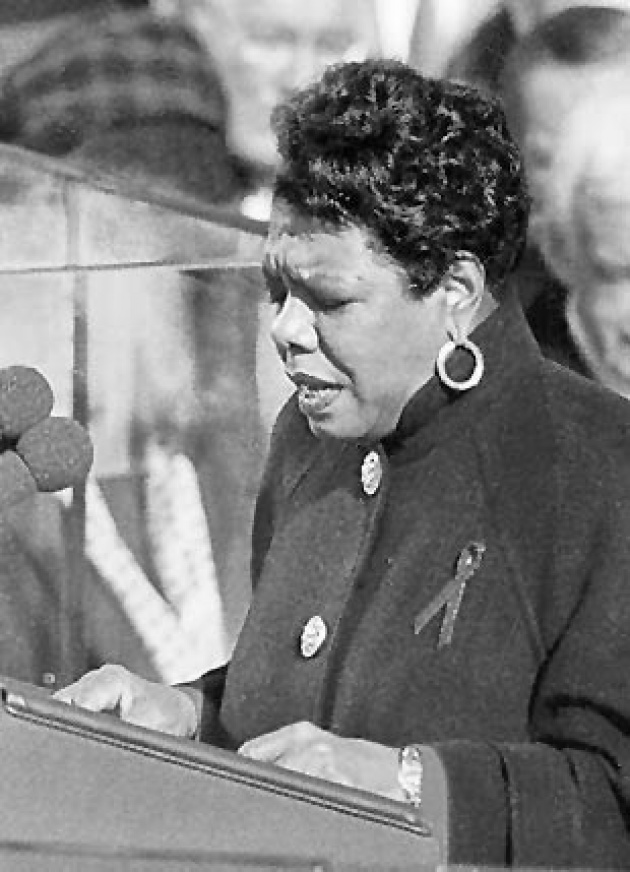PPPOOOEEETTTRRRYYY presents its very first post!
Recently came across an interesting interview with a fascinating person on the British Broadcasting Corporations website, Ms. Maya Angelou, a famous American author and poet.

Angelou is the author of an incredibly list of poems, she has participated in multiple presidential elections and even had the honor of reciting on of her poems during the inauguration o President Bill Clinton.
Ms. Maya Angelou’s name seemed so familiar to me as I researched some of her work and history, I felt as if I’d known her for an extended period of time, living in my consciousness and I finally came to learn more about this remarkable woman.Ms. Angelou was born on April 4, 1928 as Marguerite Ann Johnson. She has been a part of various movements including the Civil Rights movement with Martin Luther King Jr. and Malcolm X.

This remarkable woman has a long history and accomplished an immense amount, more than most people do in their lifetime; she really proved life is worth living so make it worth something.
Well upon looking into her work, I came across a superb poem, “Still I Rise”. The poem is very moving and captivates a lot of emotion.
The narrator is definitely in a female tone; it is challenging, rebellious and inspiring. I can honestly picture reading this to myself and to others if in a troubled or challenging situation in the adventures of life.

A great section of the poem that is truly memorable goes something like this, “You may shoot me with your words, You may cut me with your eyes, You may kill me with your hatefulness, But still, like air, I'll rise.”

Ms. Angelou truly knows how to captivate the reader, bring out their inner past, and release any emotions trapped inside. For such a strong and powerful woman, I am not surprised that she has written work not to sadden or trouble her readers, but to inspire and provoke them for the better.
I want to leave you with the first paragraph in her poem “Still I Rise” because it is beautifully written and dramatic to the ears, forcing them to listen; “You may write me down in history With your bitter, twisted lies, You may trod me in the very dirt But still, like dust, I'll rise.”



